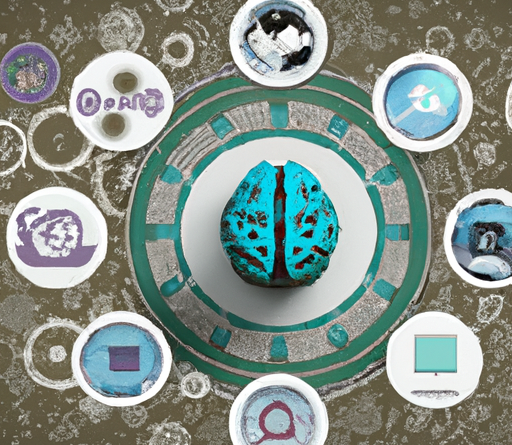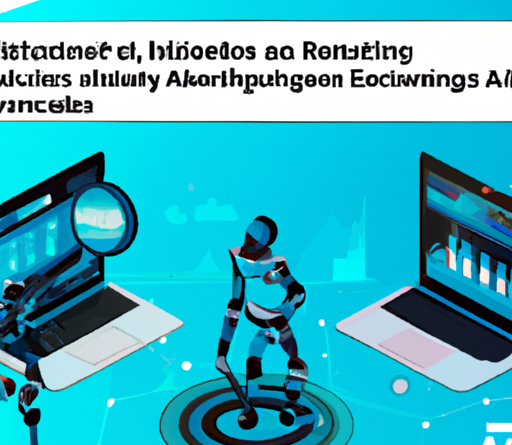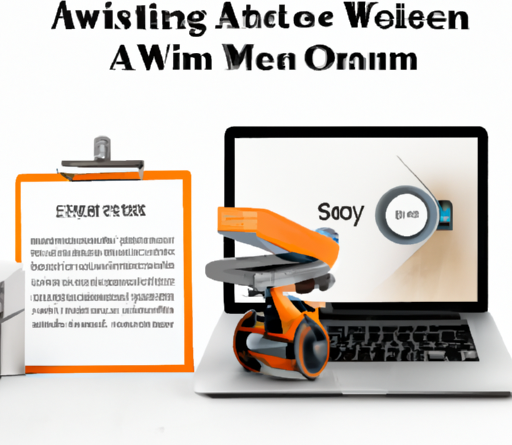
Have you ever wondered about the economic efficiency of using AI to create sales letters? You’re not alone. It’s a question many business owners and marketers ask themselves as they aim to streamline operations and save costs. In fact, artificial intelligence can be a game-changer in the development of efficient and effective sales letters.
Take a moment and imagine a tool that not only cuts down the time needed to draft a powerful sales letter, but also does it at a fraction of the cost. Sounds like a fairy tale, right? That’s exactly what AI brings to the table. By using machine learning algorithms and natural language processing, AI tools can generate sales letters that hit the right notes, every single time.
Let’s delve a bit deeper. Other than cost and time savings, what else does AI offer? One of the great benefits is personalization at scale. In the world of sales letters, personalization means higher conversion rates. Using AI, you can cater to thousands of potential customers individually, without the usual hustle. That’s a huge step toward improving your bottom line.
You’re probably thinking there has got to be a flip side. Well, nothing is perfect, and same goes for AI. While there are costs associated with implementing AI solutions and a potential for human touch to be lost, many businesses have found that the benefits far outweigh the drawbacks. Ultimately, the choice falls on your shoulders, depending on your specific needs, objectives and resources. But that’s a topic for another day! For now, just know that utilizing AI for sales letters is proving to be quite the economic game-changer.
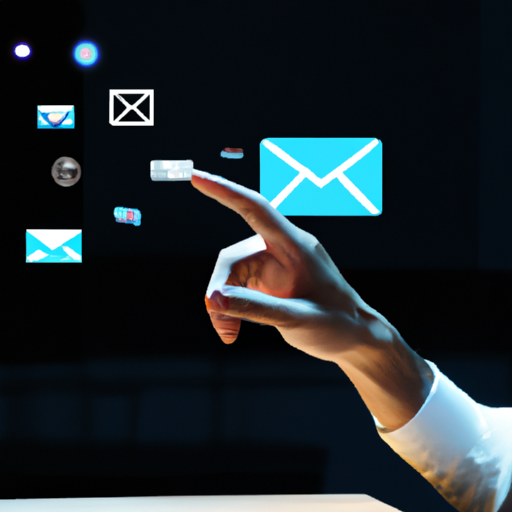
Table of Contents
Understanding Economic Efficiency and Artificial Intelligence
Concept of Economic Efficiency
When it comes to economic efficiency, it boils down to: how much can you get out of the resources at hand? It relates to maximized production, minimized waste, and optimal allocation of resources. To boost economic efficiency, many businesses turn to technological innovations – and Artificial Intelligence (AI) is at the forefront of these.
Artificial Intelligence and its Impact on Businesses
In recent years, AI has evolved from an emerging technology on the sidelines to a dominant business tool driving growth and productivity. These algorithms learn from your actions, analyze data at breakneck speed, and even undertake complex tasks like content creation with human-like competency.
The Evolution of AI in Marketing and Sales Activities
AI has come a long way in revolutionizing the fields of marketing and sales. From customer segmentation and predictive analysis, automated email campaigns to chatbots, AI has injected efficiency and precision into marketing strategies.
Artificial Intelligence in Sales Letter Creation
Automating the Creation of Sales Letters Using AI
The sales world is seeing AI do more than just crunch numbers. Its application stretches to sales letter creation, where AI can churn out personalized, well-crafted sales letters at high speed. A task that would take a human hours to compose can be accomplished by an AI in mere minutes.
Role of AI in Enhancing Creativity and Engagement in Sales Letters
AI is not just about automation; it can bring creativity and engagement into your sales letters too. With capabilities for sentiment analysis and natural language generation, AI can weave persuasive, emotion-driven content that engages audiences and garners response.
Benefits of Using AI Tools for Sales Letter Creation
The two main benefits of AI in sales letter creation are speed and personalization. With AI, you can generate high volumes of letters swiftly, much faster than any team of human writers could. On top of that, AI’s data analysis capabilities allow for highly personalized content that speaks directly to the individual customer’s needs and desires.
Comparative Analysis: AI versus Traditional Sales Letter Generation
Quality of Sales Letters: Human-Written vs AI-Generated
In comparing the quality of human-written and AI-generated letters, it’s crucial to understand that AI has come a long way. Today’s algorithms generate content that’s not just error-free but also emotionally resonant, personalized, and persuasive.
Speed of Production: Manual Process vs AI Automation
The speed of production is where AI truly outshines human writers. It can generate sales letters almost instantaneously and continuously, whereas a human writer would need breaks to maintain quality and prevent burnout.
Optimization of Content: Traditional Strategies vs AI-driven Analysis
With AI, letter optimization isn’t just faster, it’s smarter. AI can use data analysis and machine learning to perfect the message, tone, and even individual phrases within sales letters.
The Economic Implications of AI in Sales Letter Creation
Cost-Efficiency of AI Tools in Sales Letter Creation
Despite the initial investment, AI tools prove cost-efficient in the long run. They can produce letters at a much faster rate, freeing up human resources for more strategic tasks that demand human intuition.
Impact on Human Labor and Job Market
While it’s true that automation risks eliminating certain jobs, it also creates new ones. For instance, as AI takes over basic copywriting, it creates a need for AI specialists, data analysts, and digital marketers.
Potential ROI from AI-Generated Sales Letters
AI’s superior speed, personalization, and optimization capabilities result in highly effective sales letters that can significantly contribute to improved sales performance and return on investment.
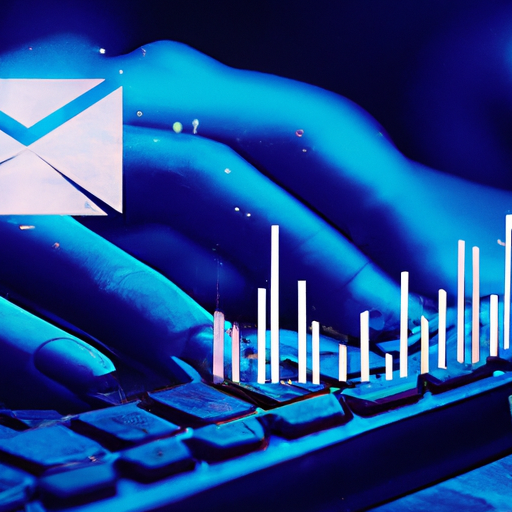
Addressing the Limitations and Risks of AI in Sales Letters
Defining the Challenges with AI-Generated Content
While AI has its benefits, it’s not without challenges. These include anomalies in generated content, limited human touch, and potential ethical issues.
Managing Errors and Anomalies in AI-Generated Sales Letters
Technological advancements are curbing the occurrence of such errors. However, it still requires human intervention to spot and rectify these glitches.
Ethical Implications of AI in Sales Letter Creation
Transparency and accountability remain moral and legal obligations for businesses, even when AI handles the bulk of content creation.
Exploring Successful Case Studies
Businesses Benefiting from AI-Based Sales Letters
Many businesses across industries – from retail, food & beverage, to technology – have reaped significant benefits from AI-generated sales letters. Such as reducing manpower costs, improved personalized communication, and better conversion rates.
Comparing the Performance of AI-Generated vs Traditionally Written Sales Letters
When comparing performance, AI-generated sales letters consistently score higher due to their ability to personalize at scale and optimum use of data to drive persuasion and conversions.
Future Prospects of AI in Sales and Marketing
Predicting Trends in AI Utilization for Marketing
As data continues to grow in size and importance, so will AI’s role in marketing. This includes enhanced personalization, predictive analysis, and real-time decision making.
How Innovations in AI could Revolutionize Sales Letters
Possible innovations range from AI being able to understand and mimic different writing styles, to advances in natural language processing creating sales letters indistinguishable from those written by leading copywriters.
Role of AI in Evolving Marketing Strategies
Integrating AI in Overall Marketing Campaigns
Integration of AI technologies can help businesses scale up, improve their performance, and achieve better results from marketing campaigns.
Influence of AI on Marketing Creativity and Personalization
AI’s ability to learn and adapt from data can result in high levels of creativity and personalization, further enhancing the effectiveness of marketing campaigns.
Preparing for the AI-Driven Sales Landscape
Adopting AI for Sales Letter Generation: Steps and Tips
In adopting AI for sales letter generation, start by choosing the right AI tool, training it with a rich data set, and integrating it into your sales strategies.
Redefining the Role of Sales Teams in an AI-Dominant Environment
Adopting AI in sales doesn’t mean making your sales team obsolete. Instead, it’s about shifting their focus from the manual, time-consuming tasks to strategic, high-level responsibilities.
Conclusion
Weighing the Benefits and Challenges of AI in Sales
In the debate of AI in sales, it’s wise to weigh the benefits against the challenges. While AI can bring efficiency and precision, businesses must also consider the ethical implications, quality control, and job displacement.
The Economic Efficiency of AI in Sales Letter Creation: A Balanced Perspective
Despite some challenges, AI showcases considerable potential for economic efficiency in sales letter creation. By reducing costs, improving quality, and delivering better ROI, AI could become the game-changer in sales and marketing. It all depends on how businesses implement and manage this revolutionary technology.





